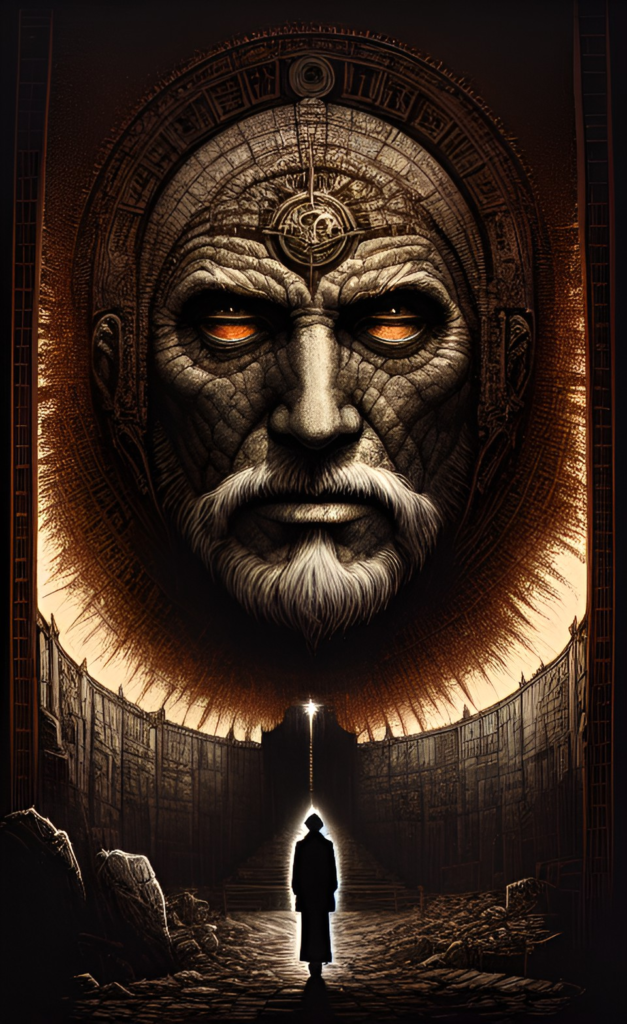
Fukuyama, bless his optimistic heart, saw the fall of the Berlin Wall as the grand finale, the curtain call on the human drama. History, with a capital H, would shuffle off the stage, replaced by a monotonous, albeit peaceful, epilogue of liberal democracies holding hands and singing Kumbaya. But Fukuyama, for all his impressive polysyllables, hadn’t reckoned with the carnivalesque id that lurks beneath the veneer of civilization. No, instead of a victory lap, we found ourselves teetering on the precipice of a historical Finisterre, a land marked not by “Here Be Dragons” scrawled on a parchment map, but by a cacophony of glitches in the matrix.
Liberal democracy, that shiny neoliberal suit Fukuyama draped over the future, rips at the seams. Populist krakens rise from the depths, their tentacles ink-black with resentment and misinformation. The godhead of technology, once a benevolent Prometheus, mutates into a Loki, weaving digital illusions and fracturing reality. The climate, a previously passive stagehand, throws a Molotov cocktail of superstorms and rising sea levels, threatening to drown the whole damn play.
As we drop from the edge, ideology curdles into grotesque parodies. Capitalism becomes a runaway clown car, spewing out a technicolor nightmare of inequality and alienation. Nationalism, that ever-present fever dream, erupts in a global mosh pit of xenophobia and border wars. Technology, once Fukuyama’s golden chariot, mutates into a Kafkaesque labyrinth, a panopticon playground for the surveillance state and rogue AIs.
And the people? We, the bewildered passengers on this existential joyride, are left clutching dog-eared copies of Pynchon novels, desperately searching for meaning in the static. We’re a generation raised on promises of a frictionless future, only to find ourselves knee-deep in the wreckage of a hypercapitalist dystopia. The only things keeping us from complete existential meltdown are a healthy dose of paranoia, a gallon of industrial-strength cynicism, and a shared sense of black humor dark enough to power a thousand suns.
We, the bewildered audience, clutch our popcorn, unsure if this is a grand tragedy or some absurdist farce. Social media, a cacophony of amplified anxieties and conspiracy theories, becomes the chorus, a million voices screaming at once. A cast of characters stumbles through the wreckage: a billionaire cypher financing a moon colony for the elite, a teenage hacker bringing empires to their knees with a single keystroke, a disgraced academic unearthing a secret history that rewrites everything we thought we knew.
Imagine a Hieronymus Bosch fever dream filtered through a cyberpunk lens. Rising ethnonationalisms hiss and prance like mutated strains of a forgotten virus. Populist demagogues, their faces flickering on a million screens, become avatars for a nameless, formless dread. The very fabric of reality seems to fray at the edges, infiltrated by conspiracy theories as dense and tangled as the Amazon rainforest on DMT. It’s a world where fringe ideologies erupt into the mainstream with the sudden, jarring clarity of a pornographic pop-up on your grandma’s recipe website.
This isn’t the “end” of history, Fukuyama. This is the cracked, funhouse mirror version, a grotesque reflection of our deepest anxieties and unfulfilled desires. We’ve stumbled upon the edge of the map, not a blank space, but a churning vortex of chaos and possibility. Here, in this liminal space, the dragons Fukuyama ignored now stir, their reptilian eyes gleaming with the promise of both destruction and, perhaps, a twisted form of liberation. The question is, do we turn tail and run, or do we dive headfirst into the maelstrom, armed with nothing but our wits and a healthy dose of paranoia?That, my friend, is the real historical drama just beginning.
This is the ragged edge of history, a place where the linear narrative unravels, replaced by a tangled knot of possibilities, both terrifying and exhilarating. Here, dragons are real, and we, armed with nothing but our wits and a healthy dose of paranoia, must fight our way through the fog. The question is whether we’ll emerge blinking into a new dawn, or simply become another cryptic inscription on the crumbling wall of history.
We, however, are staring straight into the abyss, the “Here Be Dragons” scrawled in phosphorescent graffiti across the crumbling guardrail. The edge of history, my friend, isn’t a victory lap, it’s a place where the map dissolves into a drooling, Lovecraftian nightmare, and the only compass you have is a malfunctioning Bic lighter held aloft by a trembling hand.
So, yeah, Fukuyama might have envisioned a victory parade. We, however, are attending the post-apocalyptic demolition derby, fueled by equal parts dread and a bizarre sense of exhilaration. Here at the edge of history, the only certainty is uncertainty, and the only dragons we might encounter are the ones we unleash from within ourselves. Buckle up, Dorothy, because Kansas is a long-lost dream, and the real adventure is just beginning.

